Life
Sign up for our newsletter
We summarize the week's scientific breakthroughs every Thursday.
-
 Neuroscience
NeuroscienceBrain’s protective barrier gets leakier with age
Aging influences the breakdown of the blood-brain barrier, which may contribute to learning and memory problems later in life.
-
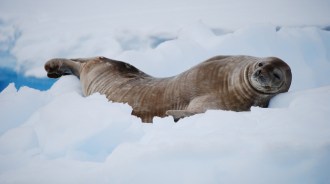 Animals
AnimalsDiving marine mammals take deep prey plunges to heart
In spite of their diving prowess, Weddell seals and bottlenosed dolphins experience irregular heart rates when they venture beyond 200 meters under the sea.
-
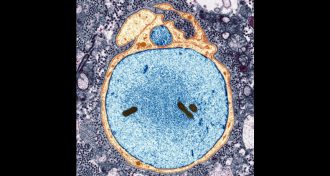 Health & Medicine
Health & MedicineImmune system ‘reset’ may give MS patients a new lease on life
With the help of their own stem cells, MS patients can stop the disease in its tracks in many cases.
By Nathan Seppa -
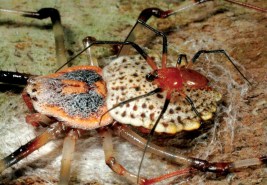 Animals
AnimalsCringe away, guys — this spider bites off his own genitals
After sex, a male coin spider will chew off his own genitals, an act that might help secure his paternity.
-
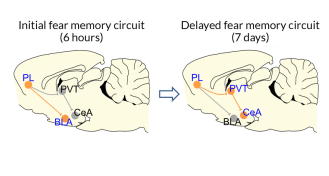 Neuroscience
NeuroscienceNewly identified brain circuit hints at how fear memories are made
A newfound set of brain connections appears to control fear memories, a finding that may lead to a better understanding of PTSD and other anxiety disorders.
-
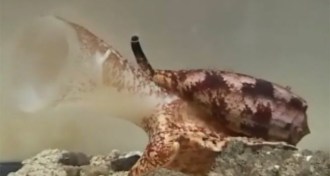 Animals
AnimalsCone snail deploys insulin to slow speedy prey
Fish-hunting cone snails turns insulin into a weapon that drops their prey’s blood sugar and eases capture.
By Susan Milius -
 Life
LifeHuman evolution tied to a small fraction of the genome
Natural selection has concentrated on a small portion of the human genome, and mostly not on genes themselves.
-
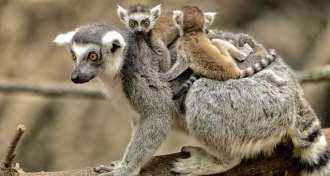 Animals
AnimalsLemurs aren’t pets
The first survey of lemur ownership in Madagascar finds that thousands of the rare primates are held in households.
-
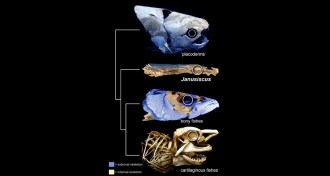 Life
LifeFossilized fish skull shakes up the evolutionary history of jaws
Analysis of a 415-million-year-old fossilized fish skull suggest that the earliest jawed vertebrates probably looked a lot like modern bony fish.
-
 Animals
AnimalsMountain migration is a roller coaster for bar-headed geese
Bar-headed geese rise and fall to match terrain below them when migrating over the Himalayas.
-
 Life
LifeIn battle to shape immunity, environment often beats genes
The environment, especially microbes, shapes immune system reactions more than genes do.
-
 Animals
AnimalsEarth’s magnetic field guides sea turtles home
Over 19 years, geomagnetic fields changed slightly and so did loggerheads’ nesting sites.
By Julia Rosen